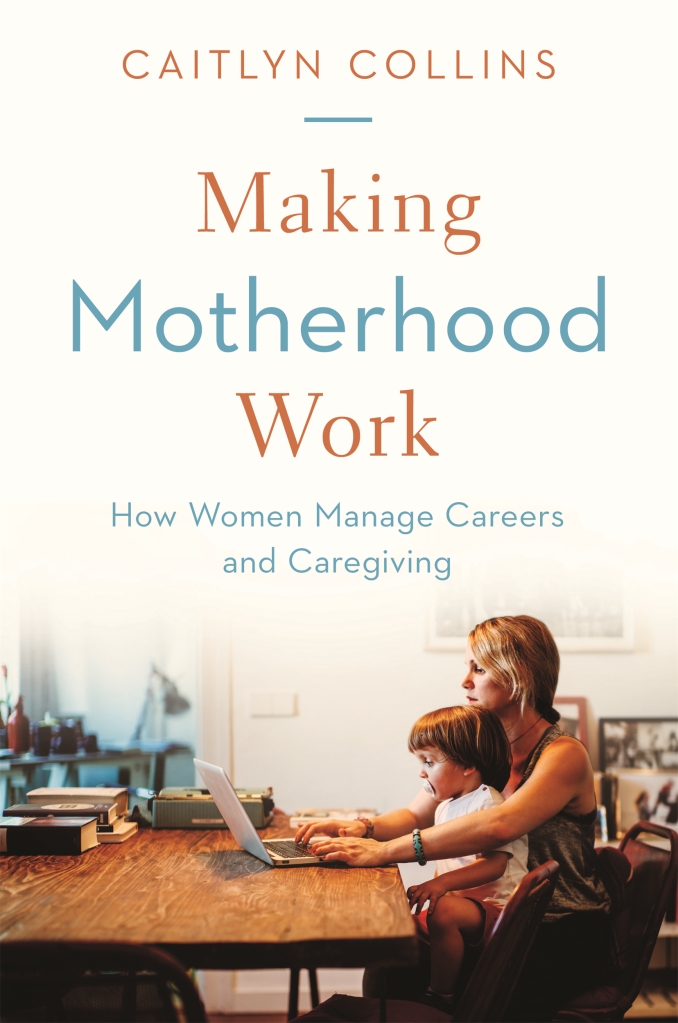
A moving cross-national account of working mothers’ daily lives—
and the revolution in public policy and culture needed to resolve their struggles
February 2019, Princeton University Press
Available wherever books are sold
H A R D C O V E R , P A P E R B A C K , E – B O O K : Indiebound, Amazon
A U D I O B O O K : HighBridge, Libro.fm, Audible, Amazon
C H I N E S E : Douban
R E A D : Introduction online
L I S T E N : Excerpts from Introduction (3:13), Ch. 5: Italy (5:12)
The work-family conflict that mothers experience today is a national crisis. Women struggle to balance breadwinning with the bulk of parenting, and stress is constant. Social policies don’t help. Of all Western industrialized countries, the United States ranks dead last for supportive work-family policies: No federal paid parental leave. The highest gender wage gap. No minimum standard for vacation and sick days. The highest maternal and child poverty rates. Can American women look to European policies for solutions? Making Motherhood Work draws on interviews that sociologist Caitlyn Collins conducted over five years with 135 middle-class working mothers in Sweden, Germany, Italy, and the United States. She explores how women navigate work and family given the different policy supports available in each country.
Transporting readers into women’s homes, neighborhoods, and workplaces, Collins shows that mothers’ desires and expectations depend heavily on context. In Sweden—renowned for its gender-equal policies—mothers assume they will receive support from their partners, employers, and the government. In the former East Germany, with its history of mandated employment, mothers don’t feel conflicted about working, but some curtail their work hours and ambitions. Given their strong maternalist values, mothers in western Germany and Italy experience stigma for pursuing careers. Meanwhile, American working mothers stand apart for their guilt and worry. Policies alone, Collins discovers, cannot solve women’s problems. Easing their struggles will require a deeper understanding of cultural beliefs about gender equality, employment, and motherhood. With women held to unrealistic standards in all four countries, the best solutions demand that we redefine motherhood, work, and family. Making Motherhood Work vividly demonstrates that women need not accept their work-family conflict as inevitable.
A w a r d s
- Winner, William J. Goode Book Award, Family Section, American Sociological Association (2020)
- Winner, PROSE Award for best scholarly work published in Anthropology, Criminology, and Sociology in 2019, Association of American Publishers (2020)
- Winner, Bronze Medal in Women/Minorities in Business, Axiom Business Book Awards (2020)
E n d o r s e m e n t s
“Through insightful interviews with employed mothers living in diverse national contexts, Caitlyn Collins demonstrates clearly and convincingly that our growing caregiving crisis stems from unjust social arrangements, not irresponsible individuals. The breadth and depth of Making Motherhood Work make it a unique and invaluable contribution that calls for nothing less than a worldwide movement for work-family justice.”—Kathleen Gerson, author of The Unfinished Revolution: Coming of Age in a New Era of Gender, Work, and Family
“Making Motherhood Work is destined to become a classic. Caitlyn Collins conducted in-depth interviews with 135 employed, middle-class mothers in the United States and in three European countries. She finds that mothers face conflict between their work and family responsibilities in all four countries, even gender-egalitarian Sweden. Collins points to European policies that could positively impact mothers and families in the United States. Yet she notes the pervasive influence of cultural expectations of mothers that are coercive and unattainable. All four countries need a cultural redefinition of motherhood that describes and honors what is possible.”—Mary Blair-Loy, author of Competing Devotions: Career and Family among Executive Women
“Comparing women in Europe and the United States and how they combine work and motherhood, Making Motherhood Work is the first cross-cultural investigation of what it feels like to live within different cultural and policy worlds. Mothers (and fathers)―even future ones―need to read this fascinating, thought-provoking, and illuminating book.”―Allison J. Pugh, author of The Tumbleweed Society: Working and Caring in an Age of Insecurity
“This ambitious and beautifully written book considers how women manage work and family in varying contexts. Carrying out wide-scale interviews in multiple settings and countries, Making Motherhood Work shows how differences in work-family policies lead to differences in the challenges that women face. An impressive contribution.”―Joya Misra, University of Massachusetts, Amherst
R e v i e w s
“Making Motherhood Work, by the sociologist Caitlyn Collins, surveys the state of affairs in Sweden (long heralded as a bastion of gender equality and a paradise for working moms); the former East Germany (where you see vestiges of a communist system that encouraged mothers to work); western Germany (where culture hasn’t caught up with pro-mom policies); Italy (where women seem supported by family and the state but don’t feel that way) and the United States (where because we get the least organizational and governmental help, we are “drowning in stress”)… Collins’s theme is that, while progressive policies can improve the lives of working mothers, cultural beliefs and narratives must move in tandem. And lawmakers and organizations must beware of unintended consequences; for example, long maternity leaves are nice but also reinforce the idea that women should be primary caregivers.” ―Alison Beard, “Ideal Worker or Perfect Mom?” (Jan/Feb 2019 print issue)
“The sociologist Caitlyn Collins casts her net wide to explore how work and family tensions are exacerbated by both a long-hours culture and what she sees as society’s dismissive attitudes towards care-giving. Stressed, exhausted and unappreciated mothers in Italy and the US share anecdotes that contrast markedly with those of their Swedish counterparts. In Sweden, more progressive social policies mean that fathers take 90 days of paternity leave and play a bigger role in childcare, bringing the nirvana of work-life balance closer to reality. This approach, Collins argues, should be more widely embraced.” ―Caroline Bullock, “Flexible Working For Parents is Great. But Child-Free People Need it, Too”
“Collins, a sociology professor, draws on interviews with working mothers in four different countries in this evenhanded, discerning exploration of work-family balance. Organizing her research by country, Collins finds that balance requires a harmonious confluence of workplace accommodations, government policies, and supportive cultural attitudes. Moms in Sweden are the most serene, enjoying extensive government benefits, adaptive workplaces, and divisions of domestic labor that allow parenthood and employment to be “compatible goals.” Germany varies, with mothers in Berlin enjoying public investment and support for “caring labor,” while moms in the more patriarchal western area of the country generally downshift to part-time work due to the social disapproval of “raven mothers,” who work when their children are young. Mothers in Italy, where unequal divisions of household work are the norm, feel extreme stress despite family support, cheap domestic labor, and patchwork government policies. In the U.S., where, Collins finds, children are regarded as a lifestyle choice and government supports are generally absent, mothers see their work-life conflicts as personal problems to resolve themselves. Collins suggests that policies must be passed in packages, rather than piecemeal—for example, making sure that daycare is available for children at the age when parental leave ends—to be most useful. This study, whose comparative approach illuminates how cultural norms affect policies and economic results, is intelligent, thought-provoking, and clarifying. (Feb.)” ―Publishers Weekly, starred review
“In Making Motherhood Work, Caitlyn Collins argues that complaints of work-family conflict are seen as women’s ‘own fault and their own problem to sort.’ This is because, she argues, motherhood is trivialised and seen as a lifestyle choice, a bit like having a puppy. Needless to say this completely misses the point. As Collins points out, children provide crucial benefits as future workers and taxpayers. ‘We don’t rely on pets to one day become our teachers, post office employees, doctors and garbage collectors. Raising children well is in a country’s collective best interest.’” ―Emma Jacobs, “The Parenting Problem: What Value Do We Place On Caring?”
T e a c h i n g
Discussion Questions (available at the end of the paperback version of the book)
ASA Trails Resource: Learning goals, activities, discussion questions, assessments by Colleen Elizabeth Wynn, University of Indianapolis
T a l k s
2023
University of Texas at Austin, Dept. of Sociology
University of Lucerne, Dept. of Sociology (Lucerne, Switzerland)
2022
The Ohio State University, Dept. of Sociology
Boston College Center for Work & Family, Distinguished Speaker Series
Colorado State University, Dept. of Biomedical Sciences
2021
Brown University, Political Theory Project, Janus Lecture Series
École des Hautes Études en Sciences Sociales, Work-Family Seminar (Paris, France)
Motherhood and Work Interdisciplinary Conference, Maynooth University (Maynooth, Ireland)
College and University Work-Life-Family Association meeting (Cambridge, MA)
Elon University, Dept. of Sociology
2020
Harvard University, Kennedy School, Inequality & Social Policy Program
University of Texas at Austin, Dept. of Sociology
Mississippi State University, Dept. of Sociology
University of British Columbia, Dept. of Sociology (Vancouver, Canada)
Bowling Green State University, Center for Family and Demography Research
New America Foundation, Better Life Lab – Crisis Conversations (New York City)
American Association of University Women (Washington, DC)
Hamilton College, Dept. of Sociology
University of Utah, Family and Consumer Studies, Family Policy Lecture
TEDx University of Nevada
Stanford University, Knight-Hennessy Scholars Program
Indiana University, Dept. of Sociology, Politics, Economy, and Culture workshop
University of Melbourne, School of Social and Political Sciences (Melbourne, Australia)
2019
University of California-Berkeley, Haas School of Business
Pennsylvania State University, Dept. of Sociology
Princeton University, Office of Population Research, Notestein Seminar Series
Harvard University, Minda de Gunzburg Center for European Studies
Tufts University, Dept. of Sociology
Northeastern University, Dept. of Sociology
University of Georgia, Dept. of Sociology
IESE Business School, 8th Intl. Conference of Work and Family (Barcelona, Spain)
University of California-Irvine, Center for Demographic and Social Analysis
University of California-Santa Barbara, Dept. of Sociology
Portland State University, School of Public Health
Hunter College, Dept. of Sociology
University of Texas at Austin, Urban Ethnography Lab
University of Minnesota, Life Course Center
2018
University of North Texas, Dept. of Sociology
Whitman College, Dept. of Sociology
2017
University of Iceland, Dept. of Social Work (Reykjavík, Iceland)



